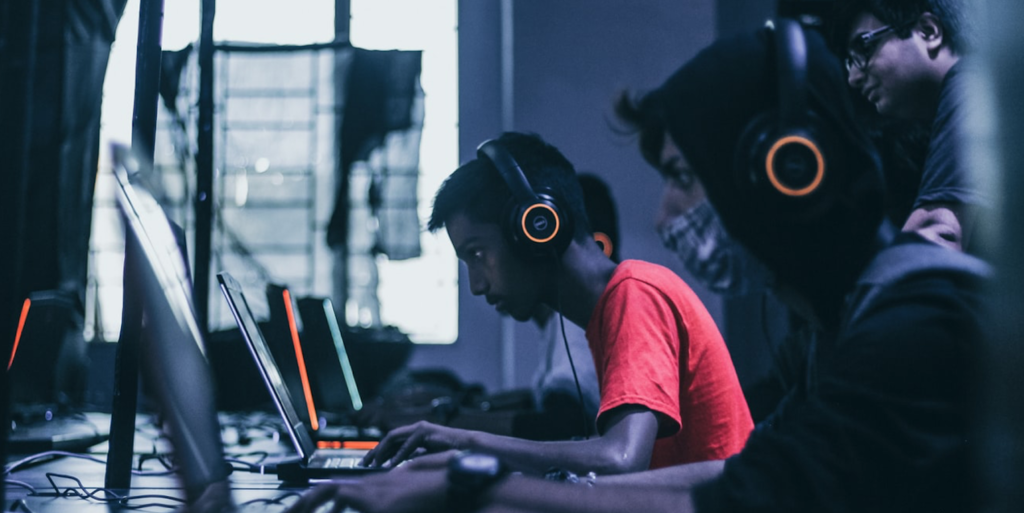Nowadays, in corporate training centers, colleges, grad schools, and government offices, the new buzzword is gamification. What is it and how is it transforming so many aspects of society? The word simply refers to the process of making a game out of something. There are literally hundreds, perhaps thousands of examples in modern life. Here are some areas of life that have been most affected by the human desire to compete and play games.

The U.S. Army
It’s fair to say that the military was a pioneer of this entire concept of turning play into serious work. In fact, the use of war games goes back centuries. Even Julius Caesar’s armies used fictitious, practice battles with each other as a way to prepare for real enemy encounters. The modern version is more pleasant, and it’s used by the U.S. Army to attract recruits to its all-volunteer force. How does it work? The Army advertises its training games widely, primarily in colleges and high schools.
Prospective recruits, or anyone with an interest in fitness, can use the app and compare their skills with highly skilled members of elite squads. Scoring is much like any other sports competition. Based on how well you match up with the real Army tough guys, you win points and rewards. From the point of view of the service, such apps are an ideal way to draw attention to what it’s like to be in the Army and how training can be fun, not boring.
Brokerage Platforms
Today’s stock trading simulators, also known as sims, are nothing more than a very sophisticated, computerized version of what we used to call paper trading. If you wanted to learn how to profitably buy and sell securities two decades ago, your broker might introduce you to the concept of paper trading. In fact, there were board games for sale and online contests you could take part in that did a good job teaching newcomers the rudiments and mechanics of market trading.
You started out with a fictitious account balance, usually of $50,000 or $100,000 and attempted to play the market, using real companies, and entering into fake transactions, hoping your portfolio would outperform those of your competitors. The bare-bones version of the activity was to simply choose five or ten stocks, pretend you had invested $1,000 in each one, and sell them as you saw fit. You kept track of all your wins and losses on paper, hence the name, paper trading. Modern-day simulators are a gamified version of the old effort. However, sims are much better at making the scenario feel real for participants, who learn how to place trades, buy, sell, and manage without any risk whatsoever.
Weight Loss Industry
No longer tied to the concept of using pounds-lost to motivate people, the weight reduction industry has jumped headlong into the use of games for helping clients reach personal goals. At least two of the nation’s larger sellers of dietary programs have begun using sophisticated apps that turn the entire process of dropping pounds into a clever battle of wits with the app and with other plan members. People trade recipes, tips, engage in chat conversations, and discuss strategy for scoring points on the app. At the end of a cycle, account holders who have reached point thresholds earn rewards like laptop cases, watches, and free club membership.
Hotel Industry
For hotel corporations, the concept of gamification is used to encourage and reward loyalty. Several of the world’s best-known resort hotel chains have started offering reward points for members who log the greatest number of stay nights or who stay in many of the chain’s hotel properties. The setup is similar to a very complex airline mileage program, except that there are more competitive, gamed concepts involved. For example, if members successfully stay in 10 or more properties within a calendar year, they score 1000 bonus points. At the end of each year, all participants are ranked according to their numeric scores and the top 50 receive $1,000 gift certificates in the company’s on-property retail shops.
Sporting Goods Corporations
Sometime in the early 2000s, sporting goods sellers discovered the idea that most of their customers were competitive people. Then, a light went off in the collective minds of corporate leaders to why not use fun competition, with prizes and rewards, as a way to attract new buyers? The idea was a good one, and today nearly every major sports seller has a gaming app that anyone can download for free. After that, you can log your running miles, or workouts, against other users and climb up the tote board. Getting to the top means winning free stuff, and then starting all over again.

